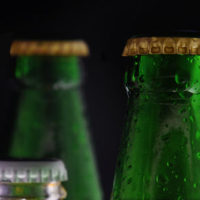Holding a Bar Responsible for Injuries Caused by a Drunk Driver

The holidays are times for gathering with family and friends to celebrate the season and reflect on the events of the past year. Many of these gatherings occur at someone’s home, but a good number also happen at neighborhood bars and restaurants. A common aspect of these celebrations is the consumption of alcohol, and while there is nothing inherently wrong with drinking, if an intoxicated person gets behind the wheel and injures or kills someone in a car accident, does the person who served the drinks bear any liability? One recent and tragic story that illustrates the potential consequences of overindulging at a party involves a woman who killed her own sons while driving drunk following a Halloween party. While the article does not state if the alcohol was served at a private residence or at a licensed bar, knowing this information is important for determining if a third party may also be responsible for subsequent deaths and injuries. Most are aware that someone who was injured due to another’s negligence has the right to file a personal injury lawsuit to receive compensation, but some states also allow injured parties to hold third parties responsible as well. In the context of alcohol-related injuries, 30 States have what are called dram shop laws that impose liability on licensed establishments that serve or sell alcohol to individuals that later hurt or kill someone because they are intoxicated. Some states even permit an injured party to sue social hosts for over-serving a guest, but Florida is not one of them. Florida’s dram shop law is more limited than others, and understanding how these rules work is important for those victimized by a drunk driver.
Under Age 21
Florida law places potential liability for the actions of an intoxicated person on businesses licensed to serve and/or sell alcohol in two instances. The first is if the person drinking is under the legal drinking age of 21. Essentially, the law holds the business responsible for violating the law by not verifying or ignoring the patron’s status as an underage drinker.
Habitual Drinker
The second instance in which Florida law extends liability to a third party business is when the intoxicated person is “habitually addicted” to alcohol, or is an alcoholic, and the business knew about the person’s problem and served him/her anyway. In practicable terms, proving someone is addicted to alcohol is extremely difficult absent records showing addiction or alcohol-related arrests. Further, proving the business knew about the addiction is even trickier unless the employee who supplied the alcohol is willing to admit he/she knew about the issue. Thus, in most cases, the business is protected from liability.
Exception for Damages When the Defendant Was Intoxicated
While injured victims may not always be able to go after the bartender, the law does make it much easier for injured parties to sue for punitive damages if the defendant was intoxicated. Normally, punitive damages are only available if the plaintiff can show he/she is entitled to these extraordinary awards, which usually requires considerably heinous or reckless conduct by the defendant. However, if the defendant was drunk when this injury occurred, this legal requirement does not apply and punitive damages are available for the asking. And, even more important, there is no cap on the amount of punitive damages a plaintiff can receive.
Get Help
Do not wait for memories to fade or evidence to disappear. Contact an lawyer as soon as possible after an injury to give yourself the best opportunity to build a strong case. The Miami law firm of Pita Weber Del Prado understands how devastating car accidents can be, and will work to hold the responsible party accountable. Contact us for a free consultation.
Resources:
wzzm13.com/news/crime/mother-kills-2-sons-in-drunk-driving-accident-charged-with-manslaughter/367679347
leg.state.fl.us/STATUTES/index.cfm?App_mode=Display_Statute&Search_String=&URL=0700-0799/0768/Sections/0768.125.html



